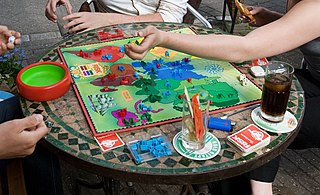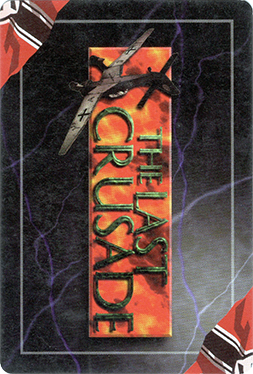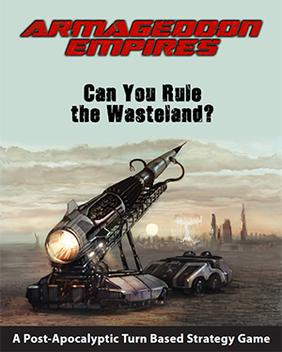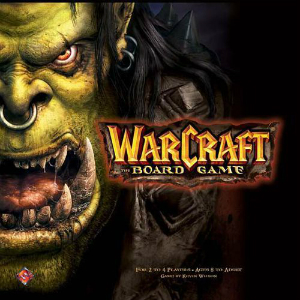
Risk is a strategy board game of diplomacy, conflict and conquest for two to six players. The standard version is played on a board depicting a political map of the world, divided into 42 territories, which are grouped into six continents. Turns rotate among players who control armies of playing pieces with which they attempt to capture territories from other players, with results determined by dice rolls. Players may form and dissolve alliances during the course of the game. The goal of the game is to occupy every territory on the board and, in doing so, eliminate the other players. The game can be lengthy, requiring several hours to multiple days to finish. European versions are structured so that each player has a limited "secret mission" objective that shortens the game.
Several video games based on the Magic: The Gathering franchise exist for multiple systems. Some have attempted to translate the card game to electronic play nearly exactly; others have taken more liberties and drawn more from the setting than the actual rules of the card game. Benefits of successful video game versions of the card game include convenience, practice, and challenge. However, artificial intelligence for a game such as Magic is an extremely hard problem, and such software usually must be continuously updated to stay current with recently released card sets. Video game versions often expand on artwork, and may include unique cards that rely on randomness, effects which would be difficult or annoying to duplicate in real life.

WarCry is an out-of-print collectible card game set in the world of Warhammer Fantasy and published by Sabertooth Games. The base game cards were released in 2003, with newer expansions introduced in the months since. A video game adaptation, titled Warhammer: Battle for Atluma, was created for the PSP in 2006.

Memoir '44 is a light wargame or war-themed strategy board game for two players. It was created by Richard Borg and published in 2004 by Days of Wonder. Illustration done by Julien Delval and Cyrille Daujean. The game can be played with up to six players if played in teams and up to eight players in the "Overlord" scenarios. However, "Overlord" requires two copies of the game. It received the 2004 International Gamers Award for General Strategy, 2-Player category and The Wargamer 2004 Award for Excellence. The game is published in English and French by Days of Wonder.

Briscola is one of Italy's most popular games, together with Scopa and Tressette (Tresette). A little-changed descendant of Brusquembille, the ancestor of Briscan and Bezique, Briscola is a Mediterranean trick-taking, Ace-Ten card game for two to six players played with a standard Italian 40-card deck. The game can also be played with a modern Anglo-French deck, without the eight, nine and ten cards. With three or six players, twos are removed from the deck to ensure the number of cards in the deck is a multiple of the number of players; a single two for three players and all four twos for six players. The four and six-player versions of the game are played as a partnership game of two teams, with players seated such that every player is adjacent to two opponents.

Avalon Hill's Advanced Civilization is a computer edition of the Advanced Civilization board game. Both the board and computer game portray the same basic concept: the players manage ancient Mediterranean civilizations in an effort to move them from the early Bronze Age to beyond the Iron Age. It was published in 1995, shortly before Avalon Hill was bought out by Hasbro in 1998.

Horus Heresy is an out-of-print collectible card game originally produced in 2003 by Sabertooth Games. The game is set in the Warhammer 40,000 fictional universe developed by parent company Games Workshop. It attempts to recreate the struggle between the Loyalist forces of the Emperor of Mankind and the Traitor forces of Warmaster Horus, during the civil war known as the Horus Heresy. The game's development and sale by the publisher were discontinued in 2008, following financial difficulties at the parent company.

Twilight Imperium is a strategy board game produced by Fantasy Flight Games in the genre of science fiction and space opera. It was designed by Christian T. Petersen and was first released in 1997. The game is in its fourth edition (2017), which has large changes over previous editions. It is known for the length of its gameplay, and its in-depth strategy.

The Conan Collectible Card Game is an out-of-print collectible card game set in the fictional Hyborian Age of Conan the Barbarian. The game was designed by Jason Robinette, and produced by Comic Images and released in 2006.
StarCraft: The Board Game, published by Fantasy Flight Games, is a game inspired by the 1998 computer game StarCraft. Players take control of the three distinctive races featured in the video games, the Terrans, the Protoss, or the Zerg, to engage in battle across multiple worlds in order to achieve victory. Each of the three races features a fairly different playing style. A prototype of the game was shown in BlizzCon 2007, with pre-release copies sold at Gen Con 2007 and Penny Arcade Expo 2007. It was publicly released in October 2007.

The Last Crusade is an out-of-print collectible card game originally published in December 1995 by Virginia-based Chameleon Eclectic Entertainment until the company closed in early 1999, at which time Pinnacle Entertainment Group took over production.
The Catan Card Game, originally named The Settlers of Catan: The Card Game, is a card-game adaptation of The Settlers of Catan board game. It is a member of the Catan series of games developed by Klaus Teuber and published by Kosmos in German, and by Mayfair Games in English. The Catan Card Game is a two-player game, although the rules can be accommodated as to allow players to share a set or for each player to have their own, as is intended for tournament play. Seven expansions of the Catan Card Game have also been released.

Paths of Glory: The First World War, 1914–1918 is a strategy board wargame, designed in 1999 by the six-time Charles S. Roberts Awards winner Ted Raicer and published by GMT Games. It covers World War I from its outbreak to the 1918 Armistice, or based on the progress of the game a hypothetical later ending of the war in early 1919, possibly due to exhaustion of Europe. The game is played on a map of Europe and the Middle East as the game board.

Armageddon Empires is a 4x turn-based strategy video game for Microsoft Windows and Mac OS X. It was released internationally for Microsoft Windows on July 16, 2007, and for Mac OS X on October 9, 2007. The title is the first game released by independent game developer Cryptic Comet.

Magic: The Gathering – Tactics was an online turn-based strategy game developed by Sony Online Entertainment, and based on the Magic: The Gathering trading card game series. First announced on November 2, 2009. The game was released January 18, 2011, for the PC, February 3, 2012, on Steam,. It is presumed that a previously announced PlayStation 3 version of the game was canceled due to the game being shut down on March 28, 2014.

Warcraft: The Board Game is a board game adaptation of the Warcraft series of computer games, created by Kevin Wilson and released in 2003 by Fantasy Flight Games. It takes elements primarily from Warcraft III: Reign of Chaos, but also incorporates elements from Warcraft III: The Frozen Throne.

Battle Dex was an online, turn-based strategy game featuring collectible cards inspired by Advance Wars and Magic: The Gathering. An open beta of the game ran from April to November 2010 and the game was publicly released on November 7, 2010.

Calculords is a turn-based strategy video game developed and published by Ninja Crime. It was released for iOS on February 21, 2014, and for Android in August of the same year. The game received positive reviews from critics, citing its inventive and fun gameplay.

The Elder Scrolls: Legends is a free-to-play digital collectible card video game, published by Bethesda Softworks for Microsoft Windows, iOS, macOS and Android in 2017.

Hearthstone is a digital collectible card game released by Blizzard Entertainment in 2014, available for Microsoft Windows and macOS PCs and iOS and Android smartphones. The game is free-to-play, with players gaining in-game currency and card packs via winning matches and completing quests, while real-world money can be spent to acquire additional card packs and cosmetic items. The game has been critically well-received and financially successful, estimated in August 2017 to earn nearly US$40 million per month. As of November 2018, Blizzard has reported more than 100 million Hearthstone players. Blizzard has continued to expand the game with the addition of multiple expansions, adventures and game modes.

















